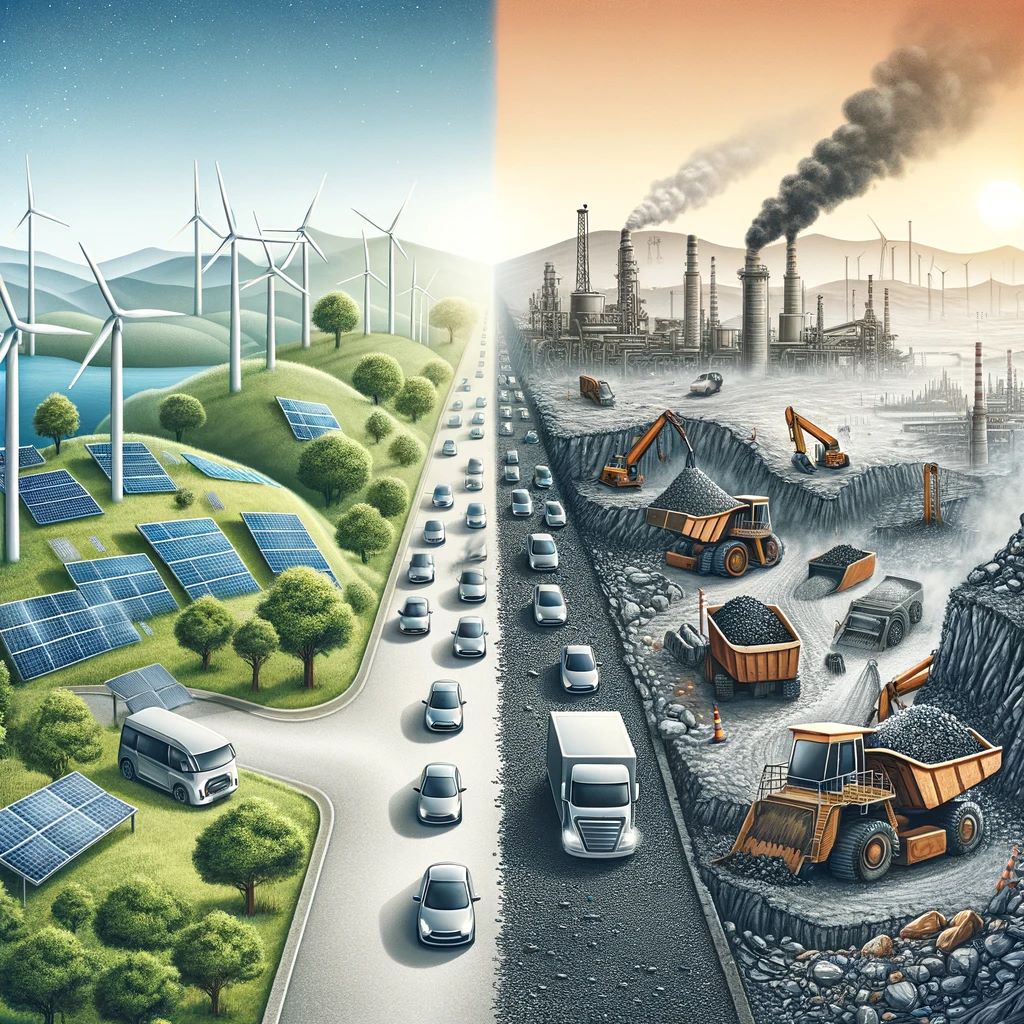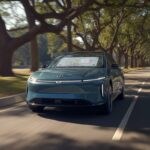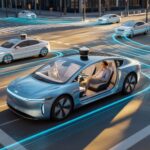
Weaknesses of Electric Car Argument:
For quite some time, I have held the belief that solely transitioning the United States (and possibly any country) to the production and utilization of electric cars is imprudent.
Recent events have only reinforced my perspective.
Tesla experienced a significant decline in sales and profits, Ford, after incurring substantial losses, shifted its focus towards hybrids, and there has been a growth in sales of internal combustion engine cars.
Additionally, Hertz withdrew its plan to purchase 100,000 electric cars, funding was withdrawn from battery plants, and Toyota, the world’s largest auto manufacturer, continues to prioritize hybrids.
One major obstacle to this exclusive reliance on electric cars is the inability of the US to establish a national grid system capable of supporting charging stations nationwide, and even within its major cities.
Currently, parts of the country already face brownouts and rolling blackouts during times of high electricity demand, particularly in hot summer weather.
Even if the range of electric cars were to improve by 50%, reaching over 300 miles, it would still necessitate recharging every four hours.
This falls short of accommodating trips such as New England to the Jersey Shore, San Francisco to Los Angeles, and even Dallas to Austin.
These calculations assume a consistent speed below 70 MPH, no traffic congestion, and no detours to enjoy scenic routes.
Moreover, the majority of electricity is generated by steam turbines fueled by fossil fuels, thereby emitting harmful pollutants into the atmosphere.
While nuclear and renewable sources make up only a small portion of the global energy supply, approximately 80% still relies on fossil fuels.
Even if we were to replace the approximately 300 million gasoline-powered cars in the US with electric or hybrid vehicles, it would not alleviate congestion in large cities.
The sheer number of vehicles would still cause significant traffic issues.
In my opinion, the fervor surrounding this particular solution is waning.
If we are not careful, we may end up with a deteriorating, outdated national grid system that is not only inefficient but also a waste of billions of dollars.
A prime example is California’s recent abandonment of a decade-long attempt to build a high-speed train from San Francisco to Los Angeles, which cost a staggering $300 billion.
While I do not have all the answers, hydrogen seems to hold promise if we can effectively harness it.
Furthermore, investing in mass transit systems between and within cities, such as Amtrak’s Acela high-speed train, which transports over two-thirds of northeast corridor traffic from Washington to Boston, could be a viable solution.
It carries more passengers than all the airlines combined on those routes.
However, one thing I am certain of is that we should not disregard the livelihoods of millions of individuals employed in the fossil fuel industries based on idealistic notions about the viability of electric cars, which may ultimately prove to be elusive.
Here are some arguments typically raised against electric cars:
Environmental Impact of Battery Production:
The manufacturing of batteries for electric vehicles (EVs) involves significant environmental costs.
Mining for lithium, cobalt, and other minerals necessary for battery production often leads to considerable ecological disruption and pollution.
Additionally, the energy-intensive process of manufacturing these batteries can result in high carbon emissions, especially if the energy used is sourced from non-renewable power plants.
Disposal and Recycling Challenges:
At the end of their life, electric car batteries pose significant disposal and recycling challenges.
Although technology and processes for battery recycling are improving, they are not yet widespread or fully efficient, leading to concerns about the environmental impact of discarded batteries.
Limited Range and Charging Infrastructure:
Electric vehicles typically have a shorter range than gasoline-powered cars, and recharging can take much longer than refueling with gasoline.
This can be inconvenient for users, especially in areas with sparse charging infrastructure or for long-distance travel.
High Initial Costs:
Despite potential savings on fuel and maintenance, the initial purchase price of electric vehicles can be significantly higher than that of comparable internal combustion engine vehicles.
This high upfront cost can be a barrier for many consumers, although various government incentives aim to reduce this burden.
Energy Source Dependency:
The environmental friendliness of electric cars is heavily dependent on how the electricity is generated.
In regions where electricity is produced primarily from coal or other fossil fuels, the use of electric vehicles may result in higher overall greenhouse gas emissions compared to areas powered by renewable energy sources.
Limited Models and Consumer Choice:
While the range of available electric vehicle models is increasing, it is still limited compared to the variety of gasoline vehicles.
This can restrict consumer choice, particularly for those looking for specific types of vehicles such as trucks or specialized vehicles.
These points illustrate some of the challenges and downsides associated with electric vehicles, contributing to the ongoing debate about their viability and environmental benefits.


